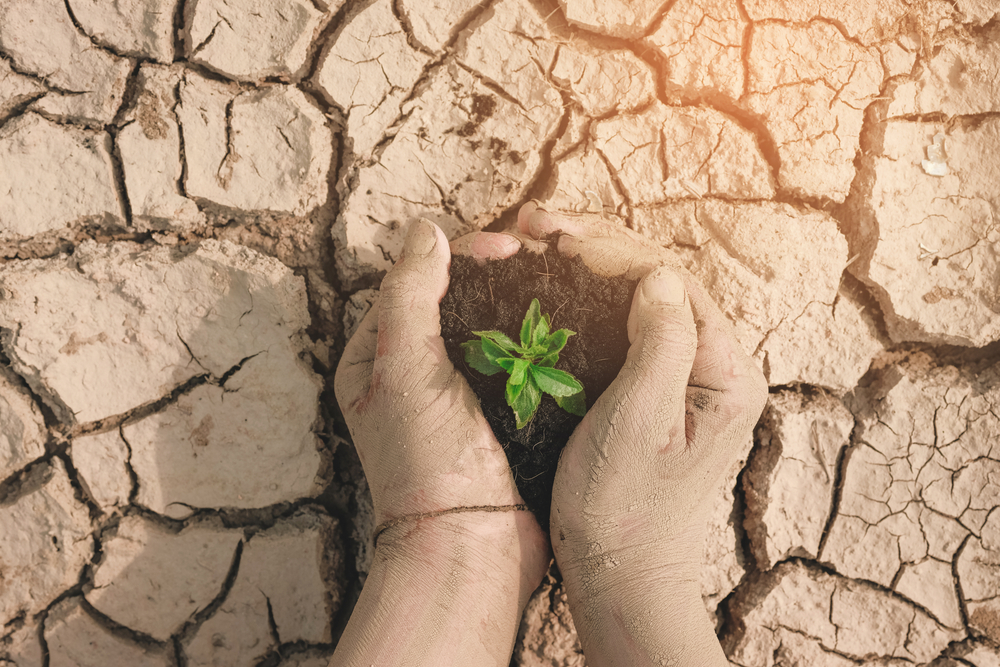Blog
A guide to coping with climate anxiety
Avoidance is not a helpful therapeutic technique for any kind of anxiety.
And the same is true for climate anxiety – even though it’s not considered a clinical condition.
Let’s unpack the ways we can cope with climate-related emotions directly – and explore how to turn climate anxiety into climate action.
What is climate anxiety?
When most of us think of anxiety today, we think of it in the context of an anxiety disorder. That is, where a person’s anxiety is disproportionate to what’s happening around them.
Their anxiety might be so intense and long-lasting that it:
- Interferes with their daily responsibilities
- Drains them of energy and vibrancy
- Leads to hopelessness or despair
Climate anxiety (or eco-anxiety) shares these characteristics – but it isn’t a clinical condition. That is, it’s not recognised in the Diagnostic and Statistical Manual of Mental Disorders (DSM-5).
That’s because it isn’t pathological. It’s a natural and rational response to something very real: climate change.
A person experiencing climate anxiety might be too distracted by fears of the future to focus on work. Since they’re carrying around a lingering sense of impending doom, they might be unable to feel joy.
Climate anxiety is entirely understandable. But that doesn’t mean we should suffer with our feelings indefinitely.
How to cope with climate emotions
As climate change comes to the forefront of our minds, we’re all reckoning with overwhelming emotions. People are experiencing climate anxiety the world over – and many are turning to psychologists for support.
Although climate anxiety isn’t a condition, per se, we can use some proven therapeutic techniques to self-regulate. Here are some strategies to try.
Get into your body
Climate change triggers all sorts of emotions. On top of anxiety, feelings of grief, loss, anger and indignance are entirely natural.
We feel our emotions in our bodies. So we need to be in our bodies to cope.
When we’re feeling upset, focusing on bodily sensations – like tension, heat or discomfort – shifts our attention away from distressing thoughts. It also helps to ground us in the present, so we can connect to our surroundings.
All emotions eventually pass. But we need to feel through them first.
Get into nature
It’s important not to worry so much about the planet that we forget to enjoy it.
Ever heard of ecotherapy? Spending time in nature has been proven, again and again, to lower symptoms of anxiety, depression and stress.
But we don’t need to do ecotherapy in a formal sense to reap these benefits.
Spend a day at the beach. Go for a hike. Stargaze at night! There are so many ways to enjoy nature. We are part of it, after all.
Practise compassion – for yourself and others
Climate anxiety often manifests as distress about our personal impact on the planet. And that can show up in many ways.
We might feel frustrated with our friends or family if they don’t share our sense of urgency.
Or we might guilt ourselves when we buy plastic-wrapped food – or when we drive.
Wanting to reduce our mark on the planet is a worthwhile cause (and there are many ways to do that). But it’s important to temper that with the realities of present-day life.
We all still need to eat, work and get through the day. We’re facing a crisis, yes – but we must be gentle with ourselves to meet it.
From anxiety to action
Worry and rumination underpin all types of anxiety. But it’s not possible to think our way out of our feelings – nor out of climate change.
As it turns out, taking action is a powerful way to defuse feelings of fear and paralysis.
There are many ways to start. Here are just a few.
Read about climate change
There are many well-written, well-researched and useful books about climate change. And more are being published every year.
It might not feel like action – but reading about climate change exposes us to new ideas, and in many cases, solutions. This can strengthen our resolve and make hope feel tangible as we move forward.
And if a book makes us feel overwhelmed, there’s no shame in putting it down.
Find your people
We can’t face this on our own. That’s why it’s so important to connect with others who share our concerns.
Joining a group of like-minded people who are taking action gives our energy an outlet – and gives us a support network.
You can find all sorts of climate groups online. This website is a great place to start.
Be mindful of money
Our money and our vote are two of our most powerful tools for change. When it comes to money, choosing to support businesses and initiatives we care about reminds us that we have some control.
Buying second-hand clothes, shopping locally and moving our money to a bank that aligns with our values are excellent steps. They have the added benefit of making us feel good, too.
Finally: A note on climate burnout
Climate change is a complex, deep-rooted problem. As important as action is – for the planet and our mental health – there may be times when it feels like nothing we do is enough.
Clinically speaking, that’s exactly how burnout begins.
As we try to find ways to be proactive, we must be vigilant for signs of disillusionment and exhaustion. Let’s remember to see our friends, escape into new TV shows – and let ourselves read books that have nothing to do with climate change.
We will need all our strength to meet this challenge. For that, we need to rest.
Are you dealing with anxiety, stress or low mood? No matter the cause or source, a psychologist can equip you with the tools to cope.
To book a time to chat with one of our psychologists, call 1300 995 636. Or enquire here.

